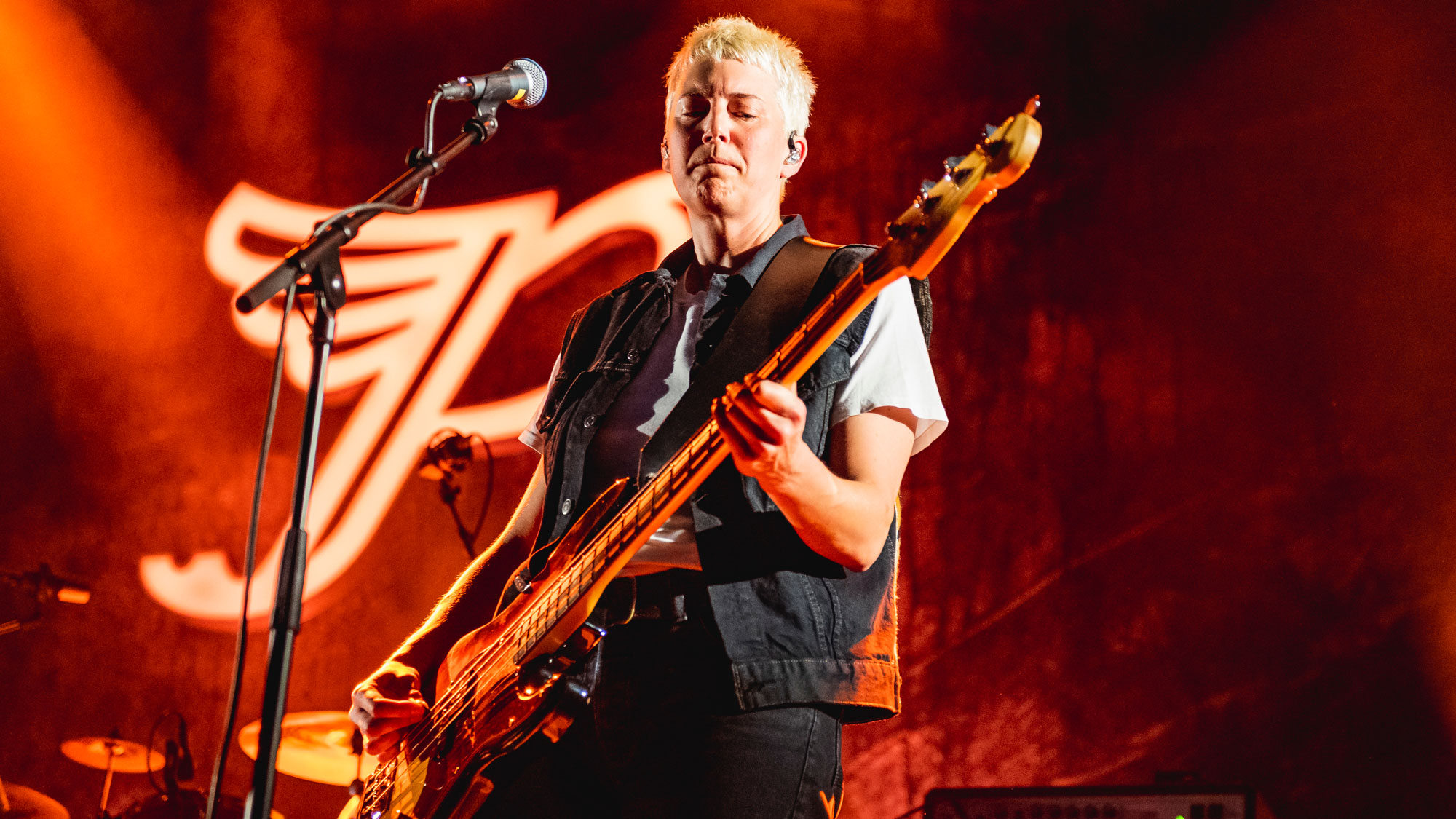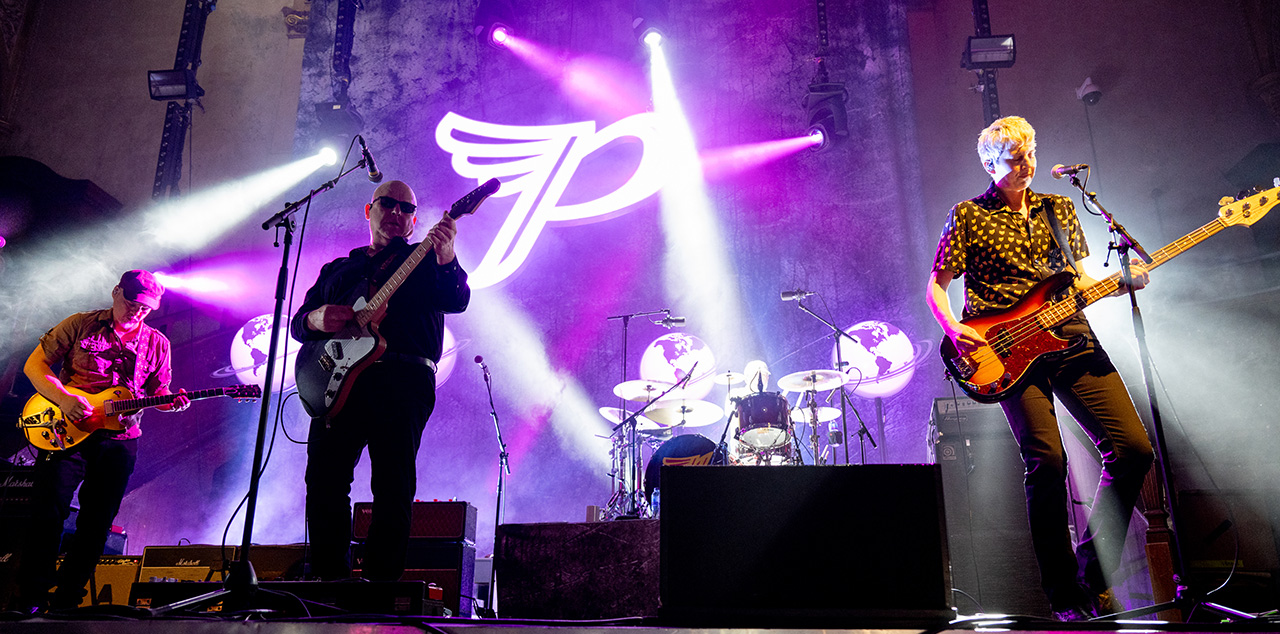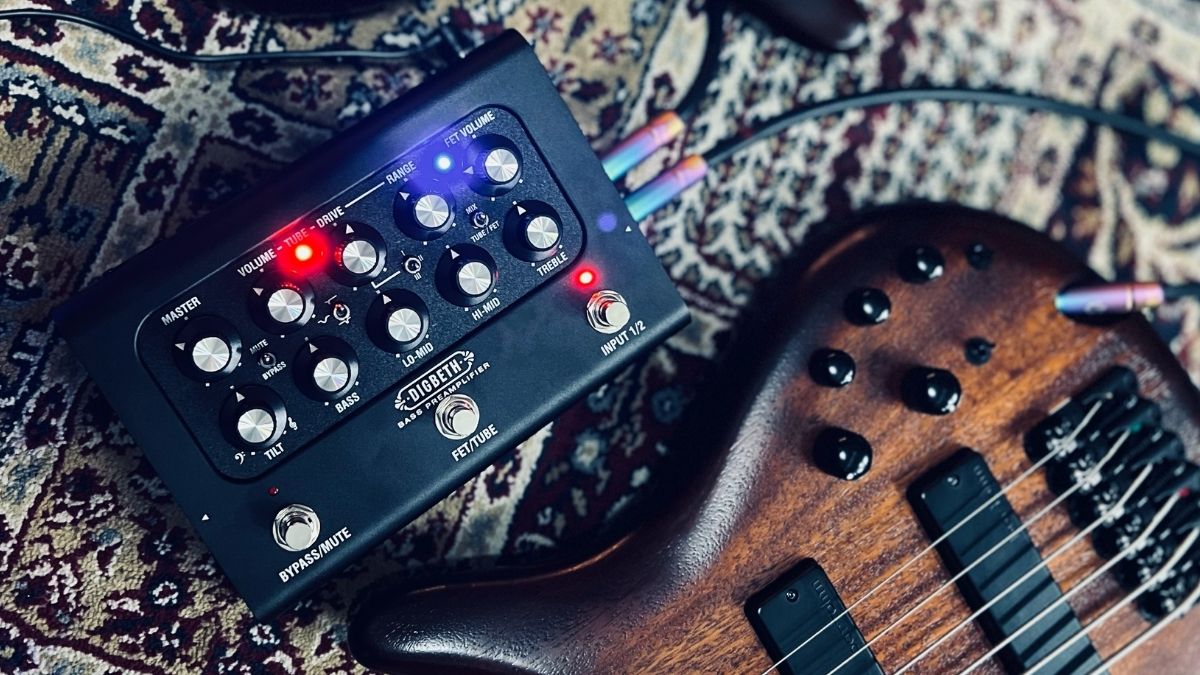“I remember hearing Doolittle and Surfer Rosa and that incredible songwriting… Being in this position is quite a ‘pinch yourself’ moment”: New Pixies bassist Emma Richardson on how landing her dream gig made her switch to picks – and ditch the pedals
The Band of Skulls bassist had to quickly learn to pick after taking over the role previously held by Paz Lenchantin and Kim Deal

Not every bassist would be up for the task of replacing Paz Lenchantin in the Pixies, after her departure was announced in March 2024 – especially since the role involves taking on the iconic basslines of co-founder Kim Deal.
But UK-born Emma Richardson, best known for her work with Band of Skulls, has the right attitude. “You can really move someone with the bass,” she tells Bass Player. “If you move in the right moment it really adds to the emotion of a song.”
When the Pixies confirmed Richardson’s addition to the lineup, the band also announced a new album, The Night the Zombies Came. Asked how she approached recording sessions as a newcomer, she says: “For me as a bass player, you don’t want to be noticed too much. You want to be there as the glue to hold things down.
“But it’s also about being able to add emotion and keeping things in line with what they wanted. They seem really happy with what I came up with and I’m super-happy to work with them. The record and the tour was a beautiful way to get to know the material.”
The Pixies bass spot is something of a volatile position. Knowing that, Richardson is living in the present for now, but she’s excited for the future – especially the prospect of getting to write music with her new colleagues. “Who knows? There’s a possibility,” she says.
How did you get hooked up with the Pixies?
“It was through a mutual friend of ours called [producer] Tom Dalgety, who I’ve worked with before in my previous band. And yeah, he mentioned that they might be looking for someone.
All the latest guitar news, interviews, lessons, reviews, deals and more, direct to your inbox!
“I ended up speaking with Charles [Black Francis] and their management. I was around and available to work with them… so, yeah, it was a nice connection to have a mutual friend and link between us.”
Were you a fan of the Pixies going in?
“Yes, big fan! A good friend of mine introduced me to them when I was at school or college. I remember hearing Doolittle and Surfer Rosa and just that incredible songwriting.”
What stood out most to you?
“It was fun; it was wild, and it had lyrics that were really fascinating to me. Obviously, Kim Deal is an incredible bass player and singer. So being in this position is quite a ‘pinch yourself’ moment.”
After joining the band, did Francis give you a sense of what he was looking for?
“They have an obvious sound already, so it was like I was stepping into some big shoes. I guess I bring my own style as well. I think it’s about serving the songs, keeping those basslines that are so iconic and those vocal parts. But also, as a new person in this mix, it’s kind of bringing my own style without veering too far.”
How does your approach to the bass differ compared to Kim and Paz?
“It’s hard to sort of know what my style is – I don’t really know! With Band of Skulls it was a real mixture of heavier rock tracks, and then we had some more delicate, melodic, slower, quieter stuff.”

That doesn't sound too different from the Pixies gig.
“It comes down sitting tight with the drummer, finding the groove with the drummer, and coming up with interesting ideas with melody. Not sticking out too much is quite a big deal.
“One of the major things was switching from playing with my fingers to a pick. I’d never played with a pick before much. That was a big shift – but I kind of love it. I wouldn’t look back now. It’s nice to be able to do both. You can get a really great sound with a pick and you can play at speed.”
They’re famous for not having a setlist… it’s an incredible adrenaline rush when the next song is called out
Have you had to adjust your rig much?
“It’s a very similar setup to what I’ve had before. I’ve always played Fender Precisions and I’ve always had either Ampeg rigs – which is what Pixies have – or a Fender Bassman. Ampeg is a great sound, and it really works with the Fender P. It’s a classic kind of setup.”
You’ve often used pedals in the past, but that's not really necessary.
“I have a tuner; I don’t have any pedals. It’s bliss – I’m not having to tapdance around and press different pedals for each song. My older rig’s pedalboard had quite a few different distortion pedals, and I was using a guitar amp, so there was more complexity. But with this I don’t need much. It works so well and fits with their sound, and the new songs as well.”
Speaking of new songs, was all the material for The Night the Zombies Came ready when you arrived?
“Yeah, they already had the songs together. I was brought in a little later. They had such brilliant songs – there are some real gems on this record. It was great to work with Tom Dalgety again, figure out the kind of basslines that would work with the tracks, and come up with vocal ideas.”
Were demos of Paz’s basslines already in place?
“Yeah, but it worked really well. The songs had a feeling of what they needed already. We came up with some great ideas for giving each song a different personality.”
What’s it like to work with Francis, Joey Santiago and David Lovering in the studio?
“It was really interesting, just seeing how their brains work and how they form songs. Drums, guitar, vocals, acoustic – whatever it is, there’s lots of exciting ideas going on in each song. They’re cleverly structured; and, as always, the lyrics are brilliant.”
How would you describe the sound and vibe of the new album?
“The songs have a kind of cultural commentary. But there’s a slight nostalgic, kind of romantic side, which is sort of tongue-in-cheek. I love the slightly filmic kind of references going on. It’s been great to work with them – they’re just really inspiring and have great ideas.”

What’s the biggest takeaway from your first Pixies tour?
“They’re famous for not having a written, formulaic setlist that they follow every night, which is really exciting. It’s an incredible adrenaline rush when the next song is called out!”
That must take a ton of preparation.
“I’ve done my homework, so I’m prepared for anything that could be called out. It’s an exciting thing each night.”
Here Comes Your Man took me a while to really nail with the vocal and the bass
Which classic song has been the most challenging?
“For me, it’s figuring out singing and playing. Here Comes Your Man took me a while to really nail with the vocal and the bass. It’s really interesting picking apart each song – you really get to know how they were put together. That’s fascinating; learning any band’s songs, you get a real insight into how they work together.”
This is a new era for the Pixies. What does it mean to you?
“It’s pretty incredible. I’m super-grateful to have been asked, and I hope I do a good job. I'm looking forward to the rest of this year – for the new album to be out and to see how people react. It’s a great record.”
- The Night the Zombies Came is released on October 25 via BMG, and available to preorder now.
Andrew Daly is an iced-coffee-addicted, oddball Telecaster-playing, alfredo pasta-loving journalist from Long Island, NY, who, in addition to being a contributing writer for Guitar World, scribes for Bass Player, Guitar Player, Guitarist, and MusicRadar. Andrew has interviewed favorites like Ace Frehley, Johnny Marr, Vito Bratta, Bruce Kulick, Joe Perry, Brad Whitford, Tom Morello, Rich Robinson, and Paul Stanley, while his all-time favorite (rhythm player), Keith Richards, continues to elude him.


